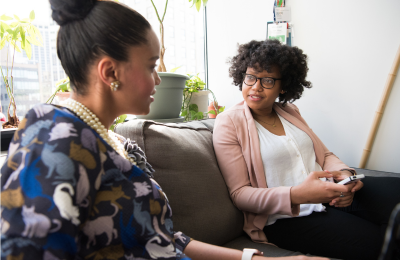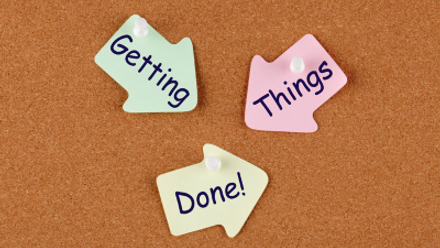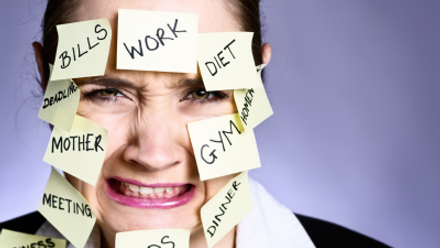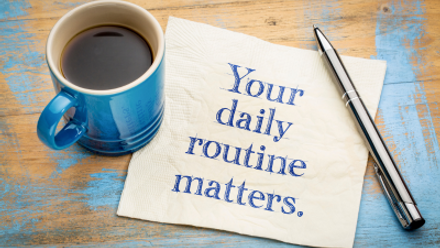Productivity and Disability
Finding Systems That Work For You
4 minute read
Productivity isn’t a one-size-fits-all concept — and for many people living with disability, chronic illness or neurodivergence, traditional ideas of being “productive” can feel limiting, exhausting or even impossible.
In this blog, APDO member Julia Jamieson explores how productivity looks different for everyone and why it’s important to create approaches that are inclusive, compassionate and tailored to individual needs. With around 1 in 5 people in the UK identifying as disabled, this is a vital conversation about how we all can work smarter, not harder, in ways that respect our energy, values and circumstances.
Understanding Disability & Productivity
Disability comes in many forms — visible and invisible, temporary or lifelong. It can include physical conditions, sensory impairments, chronic illnesses, mental health conditions and neurodivergence such as autism or ADHD. These experiences affect how people manage their time, energy and daily tasks.
The social model of disability reminds us that people are often limited more by barriers in society than by their individual conditions. These barriers may be physical (inaccessible environments), structural (rigid routines) or cultural (unrealistic productivity expectations).
Traditional productivity systems tend to value speed and high output. However, for many, productivity is about sustainability, flexibility and self-compassion — doing what matters in ways that work for them.
Productivity isn’t about doing more - it’s about doing what matters, in ways that work for you.
Common Barriers to Productivity
People with disabilities may face a variety of challenges that affect their ability to manage tasks and time:

- Physical barriers such as pain, fatigue or mobility limitations can make everyday tasks exhausting.
- Cognitive and neurological barriers like executive dysfunction or sensory overload can make planning and focus difficult.
- Emotional barriers including anxiety, burnout or feelings of frustration can reduce motivation.
- Societal barriers such as inaccessible tools or stigma can leave people feeling unsupported.
Recognising these barriers helps create realistic, respectful approaches to productivity that truly support individuals.
Productivity Strategies
Here are some practical ways to adapt productivity approaches to be more inclusive:
- Work with natural energy rhythms: Plan tasks around times of higher energy and build in rest.
- Break tasks into micro-steps: Smaller, manageable steps reduce overwhelm.
- Use adaptive tools: Visual schedules, timers, voice notes and colour coding can aid focus.
- Build in rest and recovery: Rest is essential, not optional.
- Create systems: Develop plans and routines based on what feels manageable.
- Prioritise meaning over volume: Focus on tasks that align with personal values, not just quantity.
These strategies emphasise flexibility, compassion and individual strengths.
Supporting Inclusive Productivity
Whether you’re organising your own life or helping others, it’s important to:
-
 Listen to and understand unique experiences without assumptions.
Listen to and understand unique experiences without assumptions. - Adapt approaches to fit individual capacity and preferences.
- Use clear, accessible communication.
- Celebrate progress, no matter how small.
- Know when to seek additional support from professionals.
Empowering people to define productivity on their own terms promotes dignity and wellbeing.
Technology and Accessibility: Tools That Empower Productivity
In today’s digital world, technology can be a powerful ally in making productivity more accessible and manageable for people with disabilities, chronic illnesses or neurodivergence. However, it’s important to remember that not all tools suit everyone — the key is finding technology that adapts to individual needs and preferences.
Speech-to-Text and Voice Commands

For individuals who experience fatigue, motor difficulties or cognitive challenges, typing can be exhausting or slow. Speech-to-text apps and voice command features allow them to create notes, set reminders or send messages hands-free. Popular tools like Google Voice Typing or built-in smartphone assistants (Siri, Google Assistant) make this easier and more intuitive.
Visual and Audio Reminders
Many productivity tools offer visual timers (such as the Time Timer) or apps that send audio alerts. These can be invaluable for those with attention difficulties or memory challenges, providing gentle prompts to start or stop tasks, take breaks or switch activities without needing to constantly check the clock.
Accessible Digital Planners and Organisers
Digital calendars and task managers like Microsoft Outlook, Todoist or Trello often come with customisable views, colour-coding and integration with other apps. When chosen thoughtfully, these tools help people break down tasks into manageable chunks, visualise priorities and track progress in ways that suit their cognitive style.
Noise-Cancelling and Focus Tools
For people who experience sensory overload, noise-cancelling headphones or ambient noise apps can create a calmer environment that boosts concentration and reduces stress.
Assistive Technologies and Accessibility Features
Many devices now include built-in accessibility settings — such as screen readers, magnifiers, high-contrast modes and simplified interfaces. Activating these features can transform how you interact with technology and maintain independence.
Selecting the Right Tools
What works for one person may be frustrating or overwhelming for another. Considering a selection of options and testing different tools ensures you can find what truly supports your unique workflow and lifestyle.
Technology, when matched thoughtfully to individual needs, can bridge gaps and empower productivity — making daily life more manageable, meaningful and less stressful.
An APDO member could support you in finding the right tools and approaches for your individual productivity. Use our Find an Organiser tool to begin your journey today.
Reflection
Everyone’s journey with productivity is personal and evolving. Checking in regularly with yourself or those you support can help maintain a pace that’s sustainable and kind.
Remember: productivity isn’t a race or a competition — it’s about creating systems that help you thrive.
Conclusion

Productivity is for everyone — not just those who can keep up with conventional systems. By embracing flexible, inclusive approaches, we all can find ways to manage our tasks and goals that honour our energy, challenges and values.
If you’re supporting others or yourself, remember that progress is progress, no matter how small, and every step forward counts.






